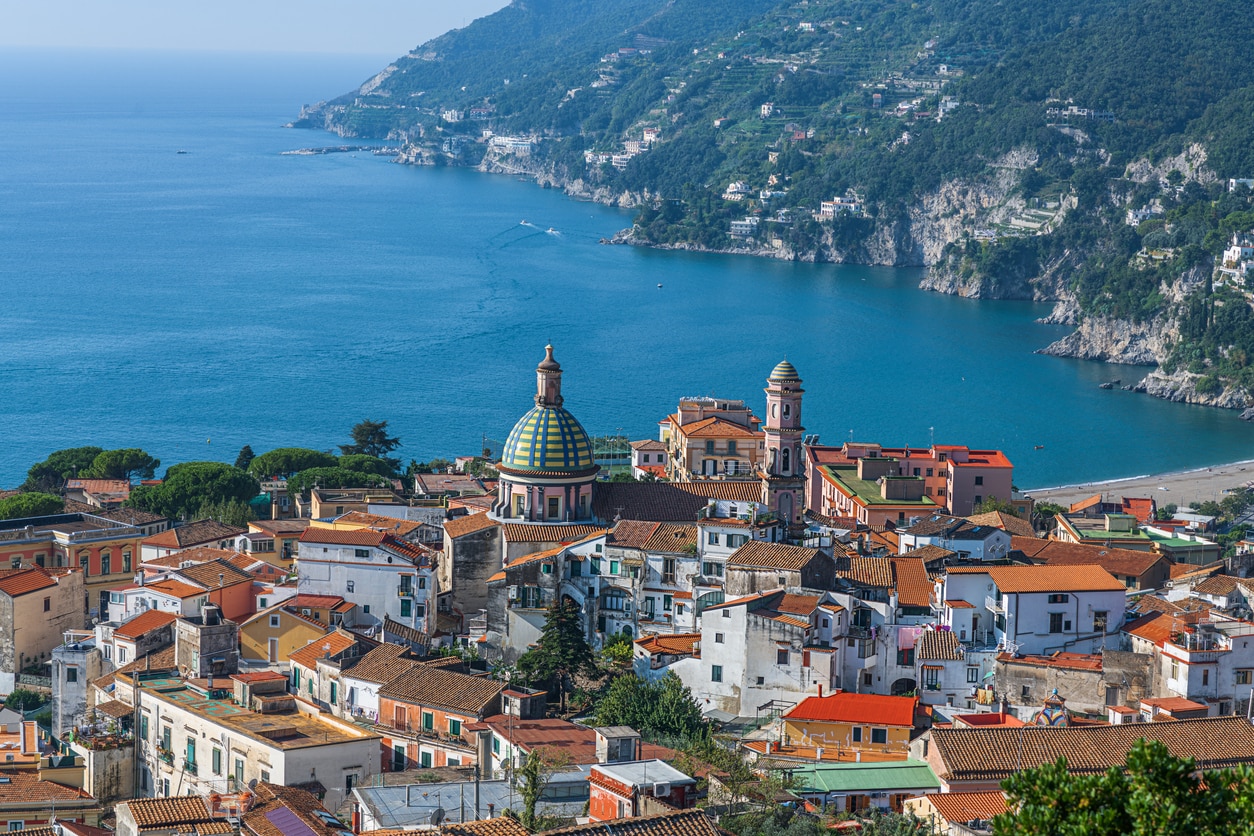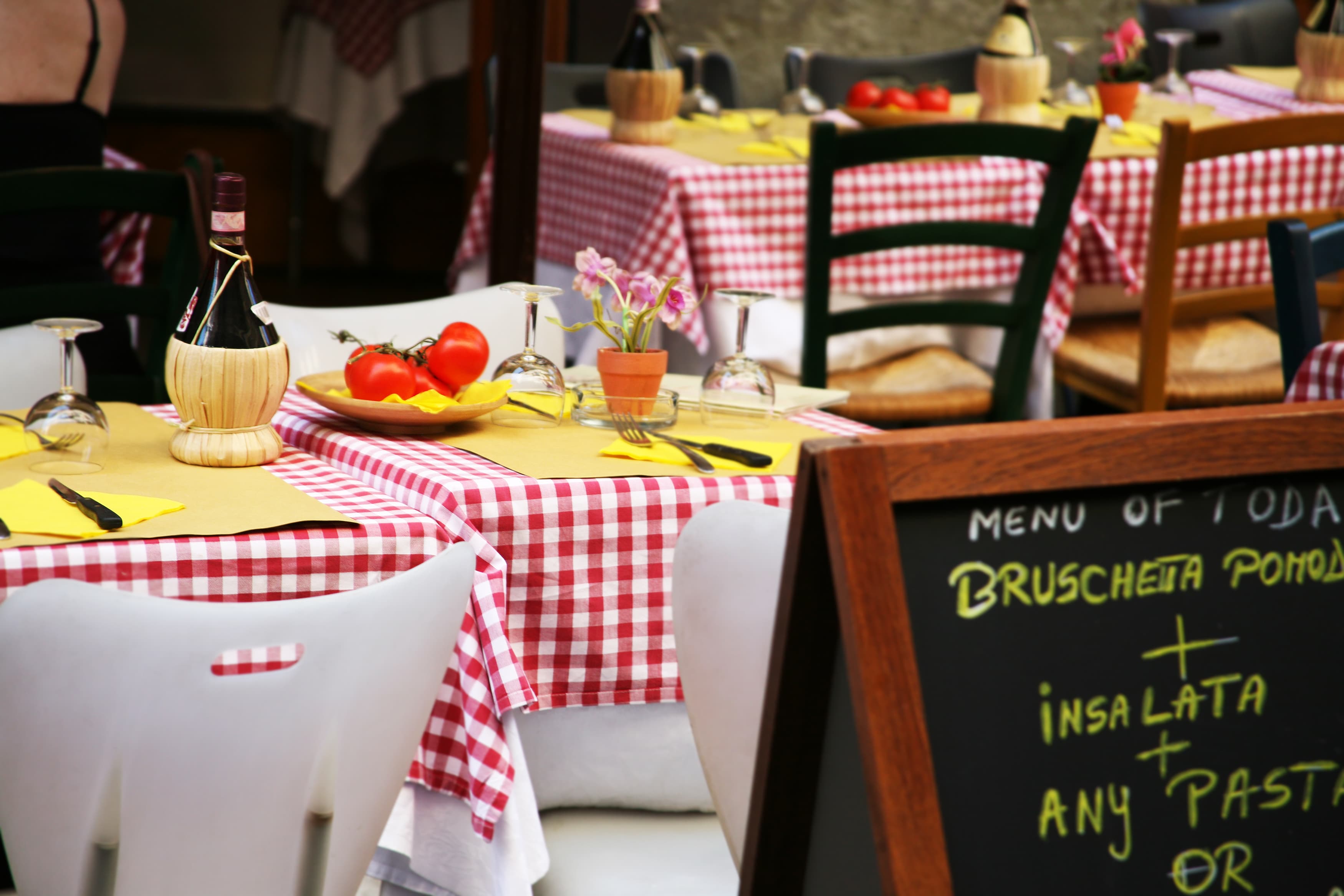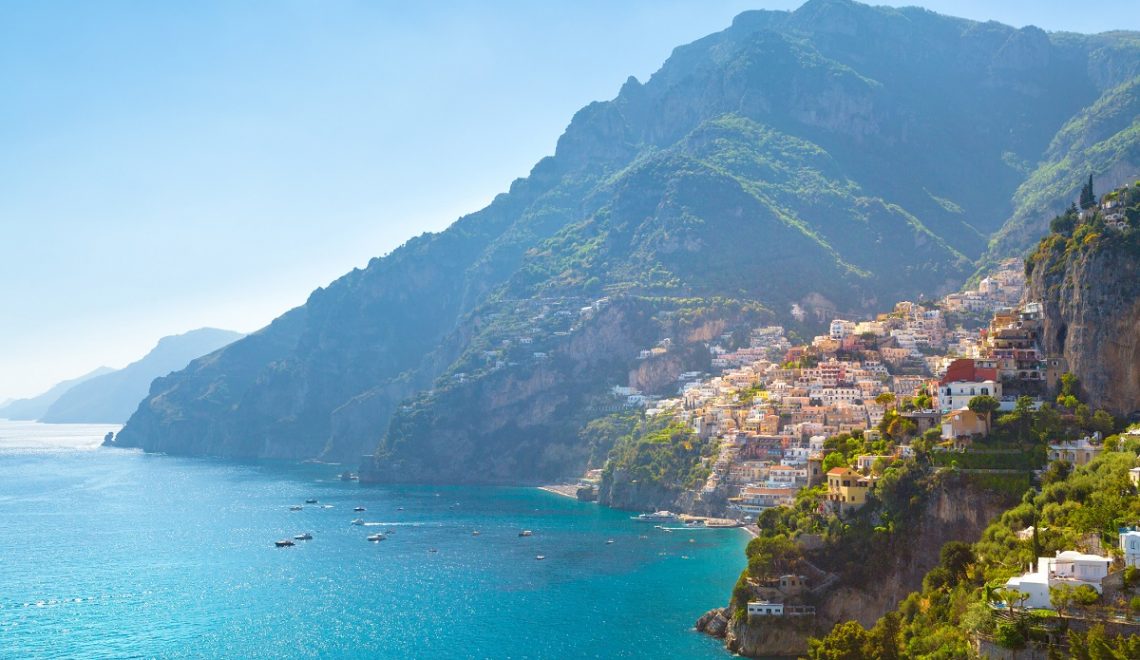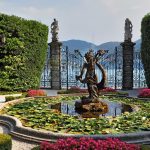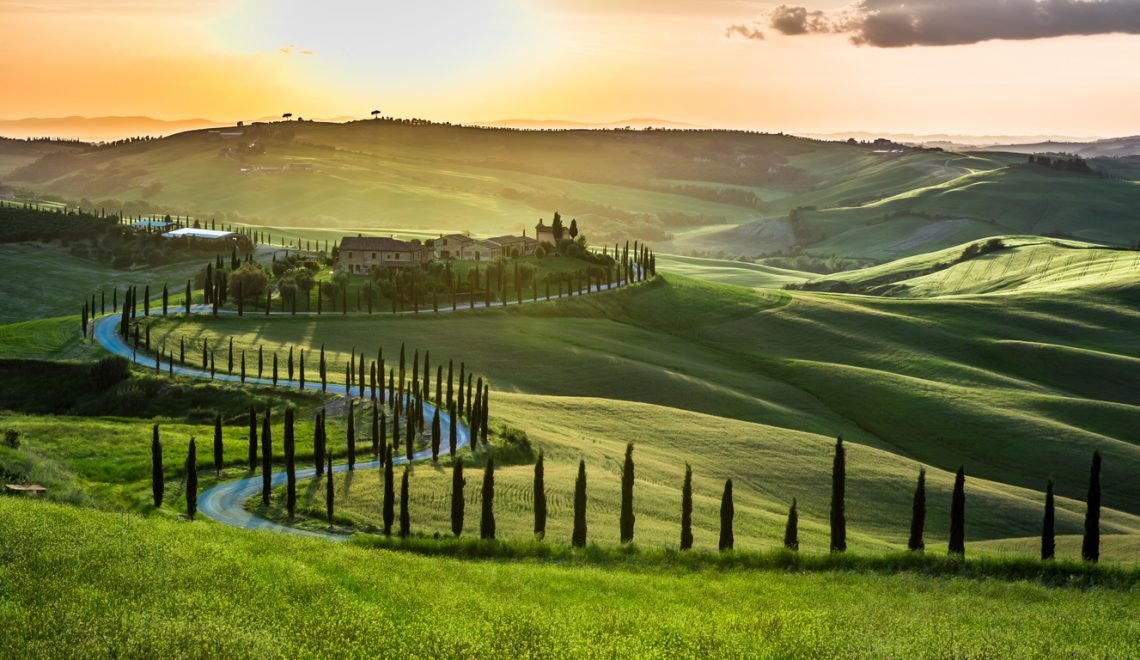
Tuscany, in central Italy, is famed for its scenic landscapes and rich culture. A reliable Tuscany Italy map is crucial for navigating charming towns, rolling hills, and historic landmarks like Florence and Chianti.
Discovering Tuscany: An Overview
- Tuscany Italy Map: Navigating Through the Heart of Italy
- Cultural Delights: Food and Wine of Tuscany
- Where to Go in Tuscany
- Florence: The Renaissance Heart and Gastronomic Delights
- Siena: Culinary Traditions in a Medieval Atmosphere
- Pisa: Beyond the Tower, a Culinary Treasure
- Lucca: A Day-Trip from Florence and Pisa
- Pienza: The City of Pecorino Between Art and Nature
- Montalcino: Land of Brunello and Ancient Traditions
- Val d’Orcia: UNESCO Landscapes and Culinary Delights
- Radda in Chianti: Ancient Villages and Fine Wines
- Monteriggioni: A Dive into the Past with Intense Flavors
- The Natural Beauty of Tuscany: Beaches and Natural Springs
Tuscany Map: Navigating the Heart of Italy
Tuscany, a region in central Italy, is renowned for its picturesque landscapes, rich artistic legacy, and vibrant culture. To truly appreciate the beauty and historical significance of Tuscany, you need a reliable map. A guide to Tuscany will help you navigate its charming towns, stunning countryside, and iconic landmarks. Whether you’re exploring the rolling hills of Chianti or the historic streets of Florence, a good map is your best companion.
Visit the beauties of Tuscany with Italo’s trains
Weather in Tuscany: Best Times to Visit
The weather in Tuscany varies throughout the year, so each season offers unique experiences for travellers. Spring (April to June) and autumn (September to October) are ideal times to visit due to the mild temperatures and lower numbers of tourists. The weather in Tuscany in September is particularly pleasant, with warm days and cool nights. By October, the Tuscan weather is beginning to cool down, offering comfortable conditions for exploring vineyards and historical sites.
How to Get to Tuscany
Getting to Tuscany is relatively straightforward. The region is well-connected by trains, buses, and flights. Major cities like Florence, Pisa, and Siena are all accessible by high-speed trains from other parts of Italy. For drivers, the Tuscan countryside offers scenic routes that are worth exploring.
Travel between Rome and Florence with Italo’s trains
How Many Days Should You Spend in Florence and Tuscany?
To fully immerse yourself in the Tuscan experience, plan to spend at least three to four days in Florence and an additional week exploring the rest of the region. Florence, the Cradle of the Renaissance, requires ample time to appreciate its art, architecture, and culinary delights. Beyond Florence, towns like Siena, Pisa, and Lucca each deserve a day or two to enjoy their unique attractions and local flavours.
Cultural Delights: The Food and Wine of Tuscany
Tuscan cuisine is a celebration of simple, fresh ingredients and traditional recipes. From hearty soups like ribollita to succulent meats such as bistecca alla Fiorentina, food from Tuscany is sure to delight your taste buds. Don’t miss the chance to sample the local cheeses, truffles, and artisanal breads during your visit.
Wineries in Tuscany: Discovering the Region’s Finest Wines
Tuscany is synonymous with world-class wines. The region’s wineries offer tours and tastings that allow you to savour renowned wines like
- Chianti,
- Brunello di Montalcino,
- Vino Nobile di Montepulciano.
Visiting wineries in Tuscany is a must for any wine enthusiast, providing an opportunity to learn about the winemaking process and enjoy stunning vineyard views.
Where to Go in Tuscany
Florence: The Cradle of the Renaissance and a Gastronomic Hub
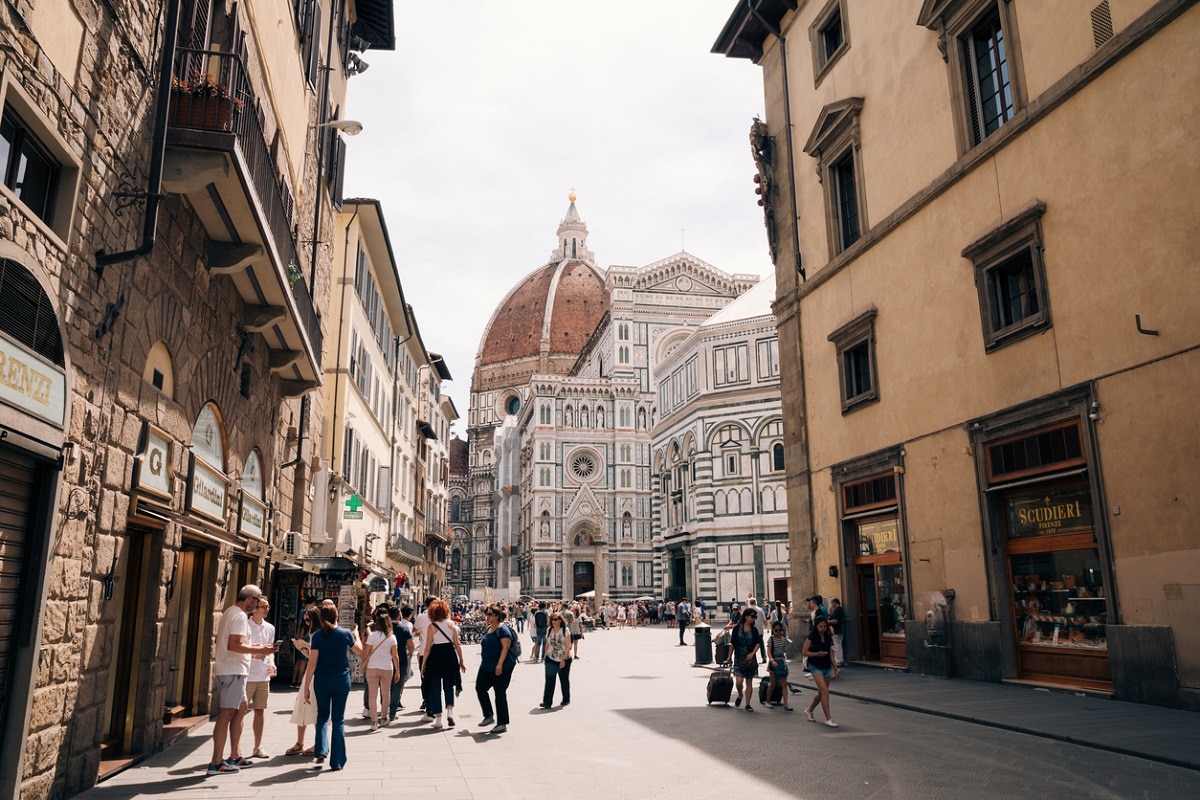
Florence, the capital of Tuscany, is a treasure trove of art and history. The city’s museums, galleries, and historic buildings, such as the Uffizi Galleries and the Duomo, are essential stops. Florence is also a gastronomic centre, offering everything from traditional trattorias to Michelin-starred restaurants.
Book train tickets from and to Florence with Italo
Siena: Culinary Traditions in a Mediaeval Atmosphere
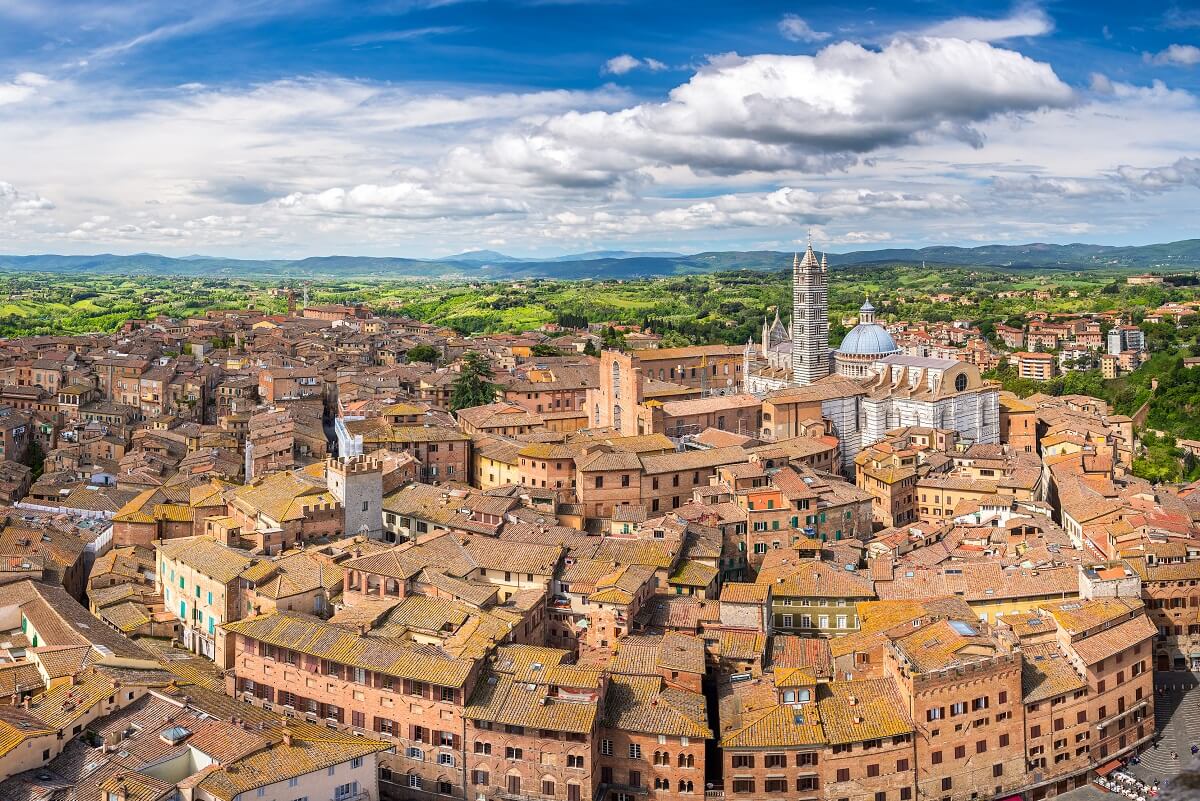
Siena’s medieval charm and culinary heritage make it a unique destination. The city’s central piazza, Il Campo, hosts the famous Palio horse race, while its local cuisine features dishes like pici pasta and panforte.
Travel between Milan and Siena with Italo’s Train
Pisa: The Gastronomic Landscape Beyond the Tower
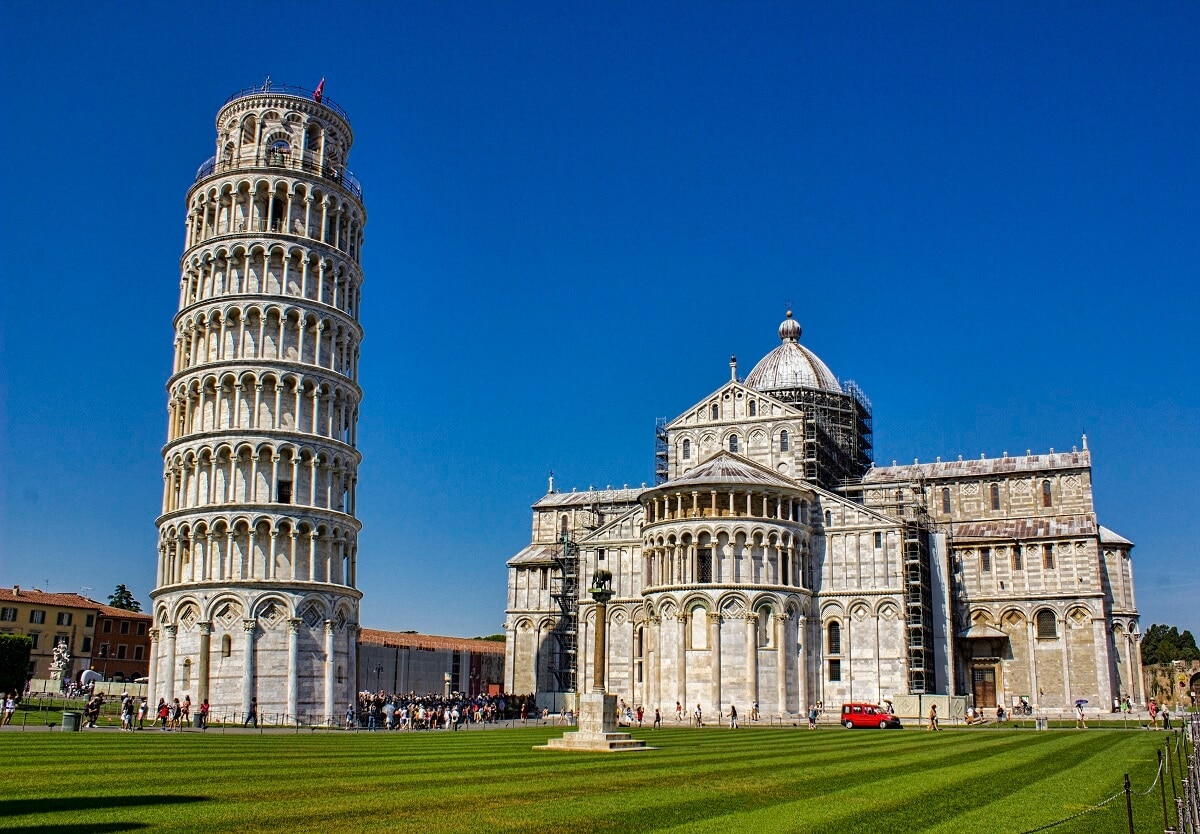
While Pisa is best known for its iconic Leaning Tower, the city also boasts a rich culinary scene. Explore local markets and eateries to sample cecina (chickpea flatbread) and other Tuscan specialities.
Book Rome-Siena train tickets on italotreno.com
Lucca: A Day Trip from Florence and Pisa
Lucca, with its well-preserved Renaissance walls and charming streets, is perfect for a day trip. Enjoy cycling along the city walls, visiting historic churches, and tasting local delicacies like buccellato (sweet bread).
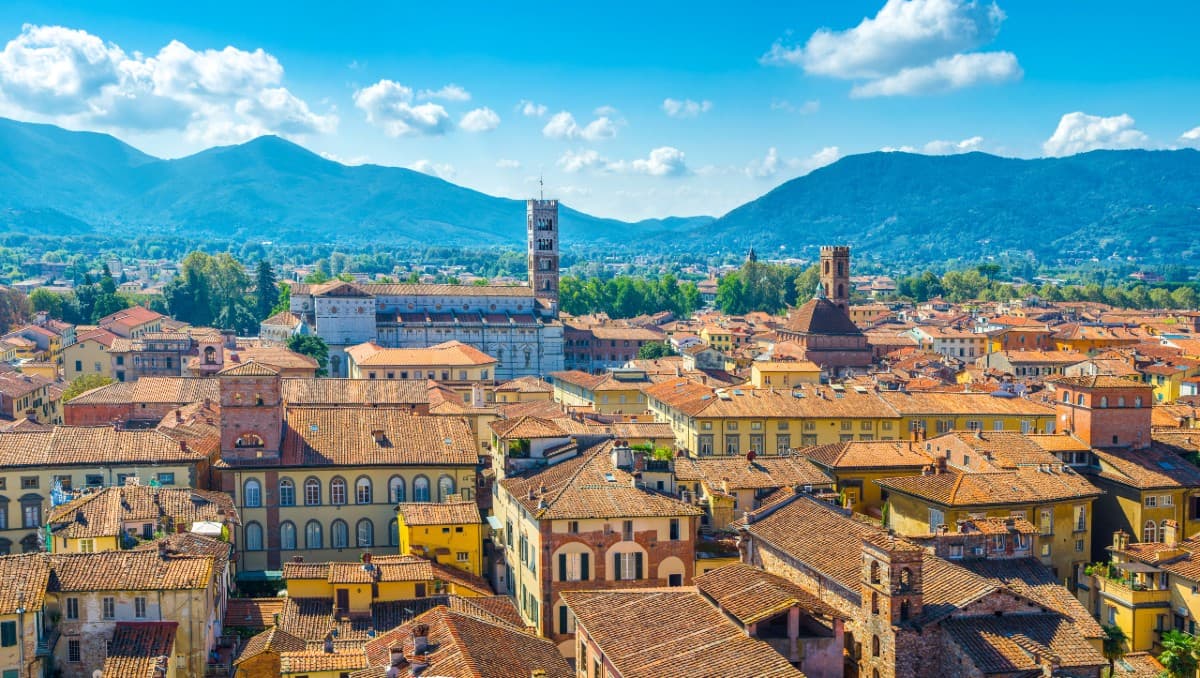
Pienza: Pecorino, Art and Nature
Pienza, located in the Val d’Orcia, is famous for its Pecorino cheese. The town’s harmonious blend of art, architecture, and nature offers a peaceful retreat and delightful culinary experiences. 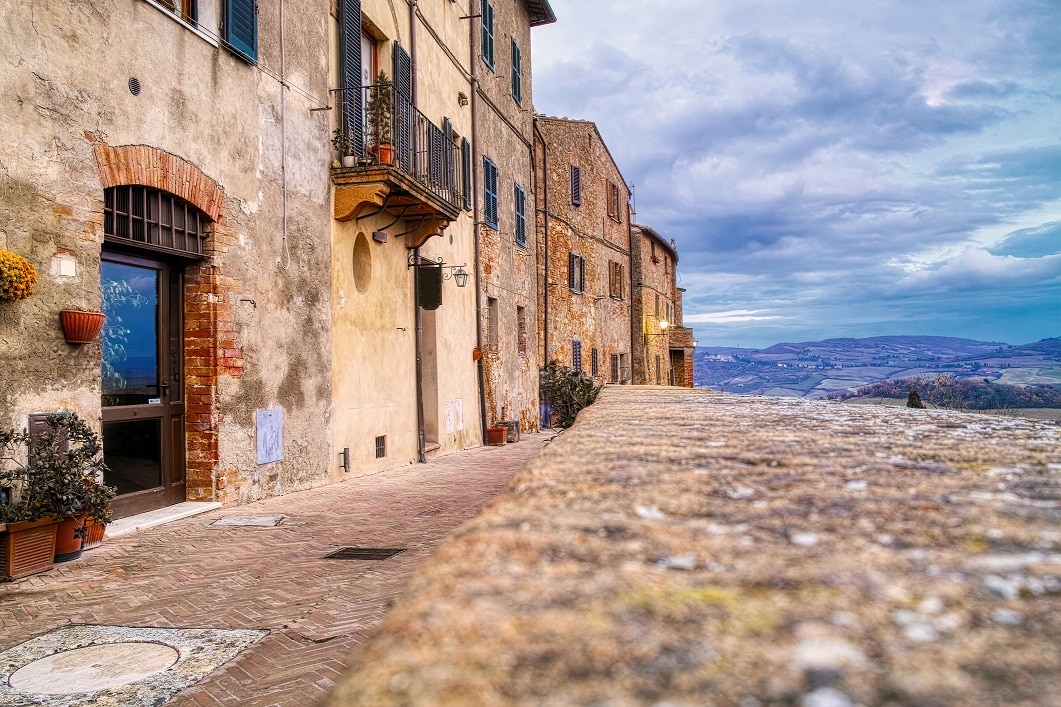
Montalcino: Land of Brunello and Ancient Traditions
Montalcino, home to the prestigious Brunello di Montalcino wine, is a must-visit for wine lovers. The town’s historic centre and surrounding vineyards provide a fascinating glimpse into Tuscany’s winemaking traditions.
Val d’Orcia: UNESCO Landscapes and Culinary Delights
The Val d’Orcia, a UNESCO World Heritage site, is known for its stunning landscapes and delicious food. Explore its rolling hills, picturesque towns, and enjoy local products like olive oil and cured meats.
Discover the most beautiful destinations in Tuscany with Italo
Radda in Chianti: Ancient Villages and Fine Wines
Radda in Chianti is a quintessential Tuscan village surrounded by vineyards. It’s an excellent place to sample Chianti wines and explore the area’s historical sites.
Monteriggioni: A Dive into the Past with Intense Flavours
Monteriggioni‘s mediaeval walls and towers transport visitors back in time. The town’s culinary offerings, including locally produced wines and traditional dishes, add to its allure.
Travel through Tuscany by high-speed train
The Natural Beauty of Tuscany: Beaches and Hot Springs
Beaches of Tuscany: Sun, Sea, and Sand
Tuscany’s coastline boasts beautiful beaches to delight every visitor. From the sandy shores of Viareggio to the rocky coves of Monte Argentario, the beaches of Tuscany are the ideal destination for sun, sea, and relaxation.
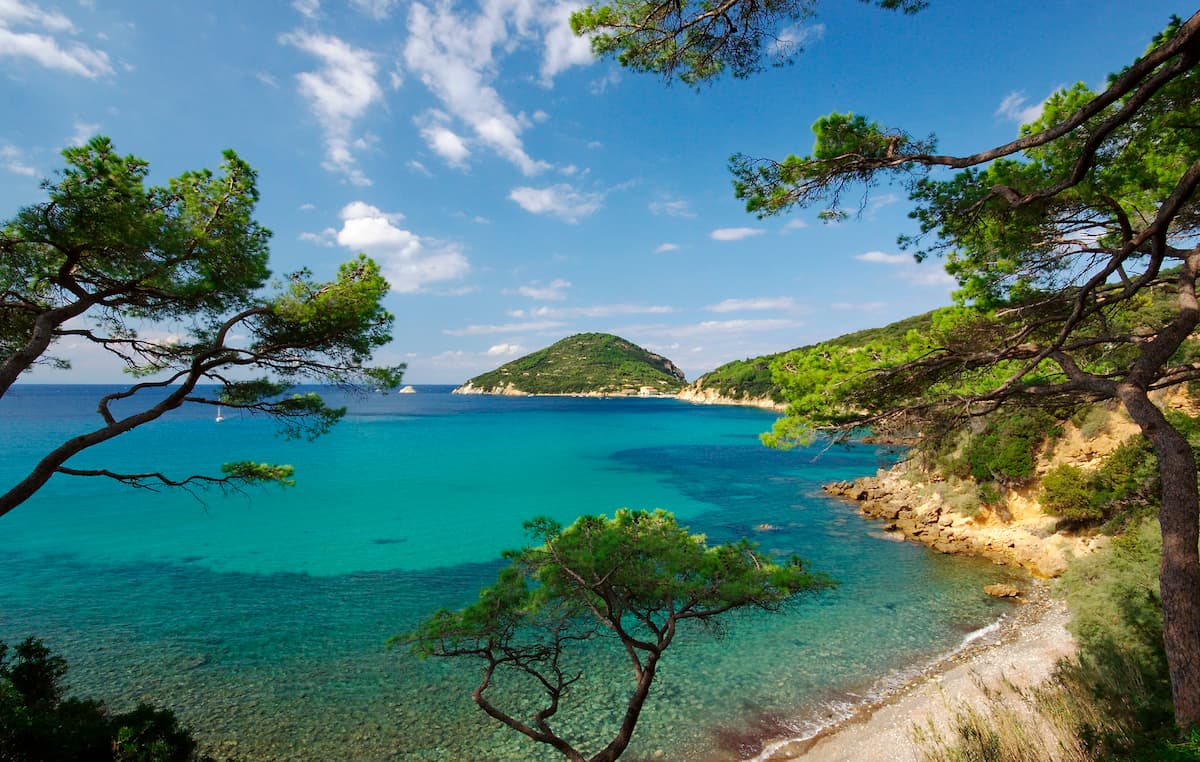
The Hot Springs of Saturnia, Tuscany: Nature’s Spa
The hot springs of Saturnia offer a natural spa experience. The thermal waters, rich in minerals, provide a soothing and rejuvenating retreat immersed in scenic surroundings.
Visit the beauties of Tuscany with Italo
Elba, Tuscany: An Island Retreat
Elba, the largest island in the Tuscan Archipelago, offers pristine beaches, crystal-clear waters, and charming villages. It’s an ideal destination for relaxation and adventure, with activities like hiking, diving, and exploring historical sites.
Exploring the Archipelago: Discovering the Islands Near Tuscany
Beyond Elba, the Tuscan Archipelago includes islands like Giglio, Capraia, and Pianosa. Each island has its own unique character, offering visitors a chance to explore diverse landscapes, marine life, and cultural heritage.

